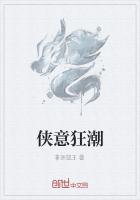"But we must not let ourselves think of that," she added, "and let us hope that they don't either. Whatever they had done it might have been the same. These terrible illnesses--"
"There's no reason--I don't believe there's any reason at all!"
Evelyn broke out, pulling the blind down and letting it fly back with a little snap.
"Why should these things happen? Why should people suffer?
I honestly believe," she went on, lowering her voice slightly, "that Rachel's in Heaven, but Terence. . . ."
"What's the good of it all?" she demanded.
Mrs. Thornbury shook her head slightly but made no reply, and pressing Evelyn's hand she went on down the passage.
Impelled by a strong desire to hear something, although she did not know exactly what there was to hear, she was ****** her way to the Flushings' room. As she opened their door she felt that she had interrupted some argument between husband and wife.
Mrs. Flushing was sitting with her back to the light, and Mr. Flushing was standing near her, arguing and trying to persuade her of something.
"Ah, here is Mrs. Thornbury," he began with some relief in his voice.
"You have heard, of course. My wife feels that she was in some way responsible. She urged poor Miss Vinrace to come on the expedition.
I'm sure you will agree with me that it is most unreasonable to feel that.
We don't even know--in fact I think it most unlikely--that she caught her illness there. These diseases--Besides, she was set on going.
She would have gone whether you asked her or not, Alice."
"Don't, Wilfrid," said Mrs. Flushing, neither moving nor taking her eyes off the spot on the floor upon which they rested.
"What's the use of talking? What's the use--?" She ceased.
"I was coming to ask you," said Mrs. Thornbury, addressing Wilfrid, for it was useless to speak to his wife. "Is there anything you think that one could do? Has the father arrived? Could one go and see?"
The strongest wish in her being at this moment was to be able to do something for the unhappy people--to see them--to assure them-- to help them. It was dreadful to be so far away from them.
But Mr. Flushing shook his head; he did not think that now-- later perhaps one might be able to help. Here Mrs. Flushing rose stiffly, turned her back to them, and walked to the dressing-room opposite.
As she walked, they could see her breast slowly rise and slowly fall.
But her grief was silent. She shut the door behind her.
When she was alone by herself she clenched her fists together, and began beating the back of a chair with them. She was like a wounded animal.
She hated death; she was furious, outraged, indignant with death, as if it were a living creature. She refused to relinquish her friends to death. She would not submit to dark and nothingness.
She began to pace up and down, clenching her hands, and ****** no attempt to stop the quick tears which raced down her cheeks.
She sat still at last, but she did not submit. She looked stubborn and strong when she had ceased to cry.
In the next room, meanwhile, Wilfrid was talking to Mrs. Thornbury with greater ******* now that his wife was not sitting there.
"That's the worst of these places," he said. "People will behave as though they were in England, and they're not. I've no doubt myself that Miss Vinrace caught the infection up at the villa itself.
She probably ran risks a dozen times a day that might have given her the illness. It's absurd to say she caught it with us."
If he had not been sincerely sorry for them he would have been annoyed.
"Pepper tells me," he continued, "that he left the house because he thought them so careless. He says they never washed their vegetables properly. Poor people! It's a fearful price to pay.
But it's only what I've seen over and over again--people seem to forget that these things happen, and then they do happen, and they're surprised.
Mrs. Thornbury agreed with him that they had been very careless, and that there was no reason whatever to think that she had caught the fever on the expedition; and after talking about other things for a short time, she left him and went sadly along the passage to her own room. There must be some reason why such things happen, she thought to herself, as she shut the door. Only at first it was not easy to understand what it was. It seemed so strange-- so unbelievable. Why, only three weeks ago--only a fortnight ago, she had seen Rachel; when she shut her eyes she could almost see her now, the quiet, shy girl who was going to be married.
She thought of all that she would have missed had she died at Rachel's age, the children, the married life, the unimaginable depths and miracles that seemed to her, as she looked back, to have lain about her, day after day, and year after year.
The stunned feeling, which had been ****** it difficult for her to think, gradually gave way to a feeling of the opposite nature; she thought very quickly and very clearly, and, looking back over all her experiences, tried to fit them into a kind of order.
There was undoubtedly much suffering, much struggling, but, on the whole, surely there was a balance of happiness--surely order did prevail.
Nor were the deaths of young people really the saddest things in life-- they were saved so much; they kept so much. The dead--she called to mind those who had died early, accidentally--were beautiful; she often dreamt of the dead. And in time Terence himself would come to feel--She got up and began to wander restlessly about the room.
For an old woman of her age she was very restless, and for one of her clear, quick mind she was unusually perplexed. She could not settle to anything, so that she was relieved when the door opened.
She went up to her husband, took him in her arms, and kissed him with unusual intensity, and then as they sat down together she began to pat him and question him as if he were a baby, an old, tired, querulous baby. She did not tell him about Miss Vinrace's death, for that would only disturb him, and he was put out already.
She tried to discover why he was uneasy. Politics again?















